News


News

Ensuring Reliable Connections: The Ultimate Guide to Waterproof Wiring Connectors
Release time:2024-06-20
viewed:1776
In today's increasingly interconnected world, reliable and secure electrical connections are paramount, especially in environments exposed to moisture, dust, and other challenging conditions. Waterproof wiring connectors play a crucial role in maintaining the integrity and functionality of electrical systems across various industries, from automotive and marine to outdoor lighting and industrial applications.
This ultimate guide delves into the essential aspects of waterproof wiring connectors, exploring their design, benefits, types, and installation processes. By understanding the importance and functionality of these connectors, you can ensure robust and reliable electrical connections, enhancing safety and performance in your projects.
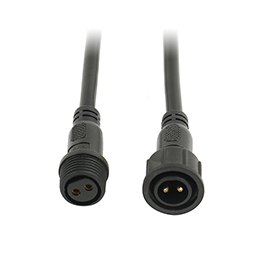
Waterproof wiring connectors are specialized devices designed to create secure electrical connections while preventing water and moisture from entering the connection point. These connectors are crucial in environments where exposure to water, humidity, or other liquids can compromise electrical systems, leading to failures or hazards.
Waterproof wiring connectors work by incorporating several design features that ensure a tight seal and protection against water ingress. Key components include:
1. Sealing Mechanisms: These connectors often use rubber gaskets, O-rings, or silicone seals to create a watertight barrier around the connection points. These seals compress when the connector is tightened, preventing water from penetrating.
2. Housing Materials: The housings are typically made from durable, corrosion-resistant materials such as plastic, rubber, or metal alloys. These materials provide robust protection against environmental elements.
3. Locking Systems: Many waterproof connectors have locking mechanisms that secure the connection and maintain the integrity of the seal. These may include screw locks, bayonet locks, or snap-on locks, depending on the application.
4. Ingress Protection (IP) Ratings: Waterproof connectors are often rated according to the IP (Ingress Protection) system, which classifies the degree of protection against solids and liquids. For example, an IP67 rating indicates that the connector is dust-tight and can withstand immersion in water up to a certain depth and duration.
By employing these features, waterproof wiring connectors ensure that electrical connections remain secure and functional, even in harsh and wet environments.
Using waterproof wiring connectors in your projects offers numerous advantages, particularly in ensuring the reliability, safety, and longevity of your electrical systems. Here are key reasons to consider incorporating them into your designs:
1. Enhanced Safety:
Waterproof connectors prevent water and moisture from reaching electrical connections, significantly reducing the risk of short circuits, electrical fires, and shocks. This is especially critical in outdoor, automotive, and marine applications where exposure to water is common.
2. Improved Reliability:
By protecting connections from water ingress, waterproof connectors maintain the integrity of electrical systems. This reliability is vital in critical applications such as medical devices, industrial machinery, and telecommunications, where system failures can have severe consequences.
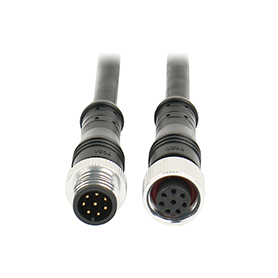
3. Longevity of Equipment:
Electrical components and connections protected by waterproof connectors are less likely to corrode or degrade over time. This extends the lifespan of equipment and reduces the frequency and cost of maintenance and replacements.
4. Versatility in Harsh Environments:
Waterproof connectors are designed to perform in challenging conditions, including exposure to water, dust, dirt, and extreme temperatures. This versatility makes them suitable for a wide range of applications, from outdoor lighting and signage to agricultural equipment and military devices.
5. Compliance with Standards:
Many waterproof connectors meet stringent industry standards and certifications, ensuring they provide adequate protection and performance in demanding environments. Using certified connectors helps meet regulatory requirements and assures quality.
6. Ease of Installation:
Modern waterproof connectors are designed for ease of installation and maintenance. They often feature user-friendly locking mechanisms and clear assembly instructions, allowing for quick and secure connections without specialized tools.
Waterproof wiring connectors significantly enhance electrical safety by providing robust protection against water and moisture, which are common culprits in causing electrical failures and hazards. Here’s how they contribute to improved safety:
1. Prevention of Short Circuits:
Water can create conductive paths between different parts of an electrical system, leading to short circuits. Waterproof connectors seal the connection points, preventing water ingress and thereby reducing the risk of short circuits.
2. Protection Against Electrical Shocks:
Exposure to moisture can compromise the insulation of electrical wires and components, increasing the risk of electrical shocks. Waterproof connectors maintain the integrity of the insulation, protecting users from accidental shocks.
3. Reduction of Corrosion and Oxidation:
Water and humidity can cause corrosion and oxidation of metal contacts within connectors, leading to poor connections and potential failures. Waterproof connectors use materials and sealing techniques that protect against corrosion, ensuring long-term reliability and safety.
4. Maintenance of Electrical Integrity:
By keeping moisture out, waterproof connectors help maintain the electrical integrity of connections, ensuring consistent performance. This is particularly crucial in critical applications such as medical devices, automotive systems, and industrial machinery where reliable operation is essential.
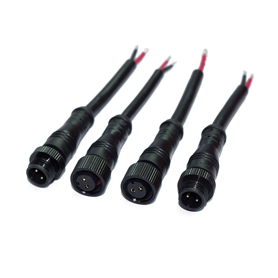
5. Compliance with Safety Standards:
Many waterproof connectors are designed to meet rigorous safety standards and certifications, ensuring they provide adequate protection in various environments. Using such connectors helps ensure compliance with safety regulations and industry best practices.
6. Enhanced Durability in Adverse Conditions:
Waterproof connectors are built to withstand harsh environmental conditions, including rain, snow, and extreme temperatures. This durability ensures that electrical systems remain safe and operational even in challenging settings.
Waterproof wiring connectors come in various types and configurations to meet the needs of different applications. Here are some of the most common types:
Features: Circular in shape, these connectors often have multiple pins or sockets and are secured with a threaded, bayonet, or push-pull locking mechanism.
Applications: Used in industrial automation, military equipment, marine electronics, and outdoor lighting.
Features: These connectors have a rectangular shape and can accommodate a high number of contacts. They typically use gaskets or seals to ensure waterproofing.
Applications: Common in telecommunications, automotive systems, and computer hardware.
Features: Designed to transmit RF signals, these connectors are shielded to prevent signal interference and often include waterproof seals.
Applications: Used in antennas, satellite communication, and other RF applications.
Features: Waterproof versions of standard USB or data connectors, these include additional sealing mechanisms to protect against moisture.
Applications: Ideal for outdoor computing devices, marine electronics, and portable equipment.
Features: These connectors secure the end of a cable and provide a waterproof seal where the cable enters an enclosure or device.
Applications: Widely used in industrial control panels, junction boxes, and outdoor installations.
Features: Inline connectors allow two cables to be connected end-to-end with a waterproof seal. They often use screw or bayonet mechanisms for secure connections.
Applications: Suitable for extending cables in outdoor lighting, irrigation systems, and automotive wiring.
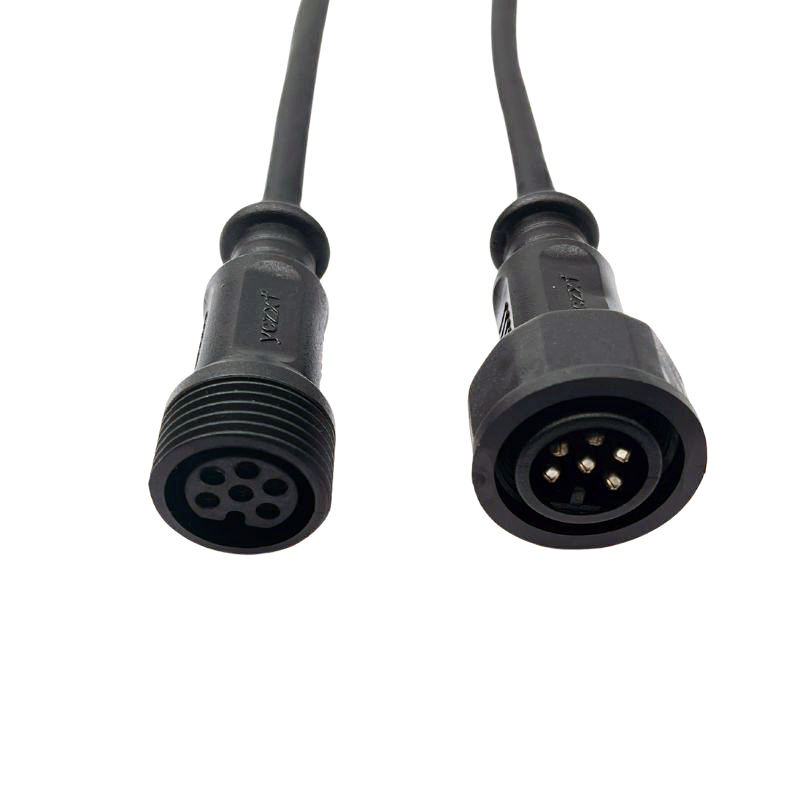
Features: Specifically designed for vehicle applications, these connectors are robust and can withstand the harsh conditions found in automotive environments.
Applications: Used in vehicle wiring harnesses, engine compartments, and external sensors.
Features: These connectors use screw terminals to secure wires and often include waterproofing gaskets or enclosures.
Applications: Common in HVAC systems, industrial machinery, and marine applications.
Features: Consist of a male plug and a female socket, these connectors often have waterproof seals and locking mechanisms to ensure a secure connection.
Applications: Found in a wide range of applications from consumer electronics to heavy industrial equipment.
By selecting the appropriate type of waterproof wiring connector for your specific application, you can ensure reliable performance and enhanced safety in environments where moisture and harsh conditions are present.
Choosing the right waterproof wiring connector for your application involves considering several key factors to ensure optimal performance, reliability, and safety. Here’s a guide to help you make the right choice:
1. Environmental Conditions:
Evaluate the environmental conditions where the connector will be used. Consider factors such as exposure to water, moisture, dust, chemicals, and temperature variations. Select a connector with an appropriate IP (Ingress Protection) rating that matches the environmental challenges of your application. For instance, IP67 indicates protection against dust ingress and immersion in water up to a certain depth.
2. Connector Type:
Determine the specific type of connector required based on your application's needs. Different types include circular connectors, rectangular connectors, coaxial connectors, USB/data connectors, cable gland connectors, and more. Choose a connector that fits the form factor and functionality requirements of your electrical system.
3. Number of Contacts:
Consider the number of electrical contacts required by your application. Ensure that the connector has sufficient pins, sockets, or terminals to accommodate all necessary connections without compromising functionality or safety.
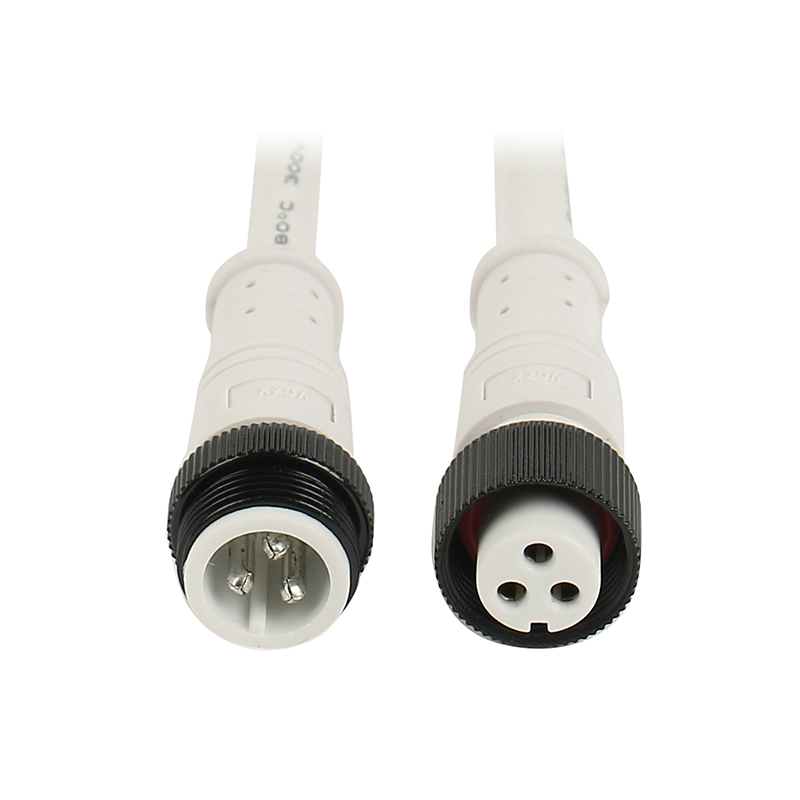
4. Current and Voltage Ratings:
Verify that the connector can handle the electrical current and voltage levels required by your equipment or system. Select connectors with adequate current-carrying capacity to prevent overheating and ensure reliable electrical performance.
5. Mounting and Installation:
Evaluate the mounting options and installation requirements of the connector. Some connectors feature panel-mount designs, while others are suitable for cable-to-cable or cable-to-device connections. Choose a connector that facilitates easy and secure installation in your specific application.
6. Material and Durability:
Consider the material construction of the connector, especially the housing and sealing elements. Opt for materials such as corrosion-resistant metals, high-grade plastics, or rubber compounds that provide durability and longevity in challenging environments.
7. Locking Mechanism:
Assess the connector’s locking mechanism to ensure a secure and reliable connection. Different locking mechanisms include threaded, bayonet, snap-lock, and push-pull designs. Choose a locking mechanism that suits the vibration levels and mechanical stresses present in your application.
8. Certifications and Standards:
Check if the connector complies with relevant industry standards and certifications for electrical safety and performance. Certifications such as UL, CSA, and RoHS ensure that the connector meets quality and safety requirements for specific applications and markets.
By carefully evaluating these factors and consulting with a knowledgeable supplier like MSK.PCB, you can choose the right waterproof wiring connector that ensures robust performance, longevity, and safety in your electrical applications.
In conclusion, for those seeking high-quality waterproof connectors at wholesale prices, Yongchang is your reliable partner. With a reputation for excellence and a wide range of products that meet diverse industrial needs, Yongchang ensures dependable solutions for securing electrical connections in challenging environments.
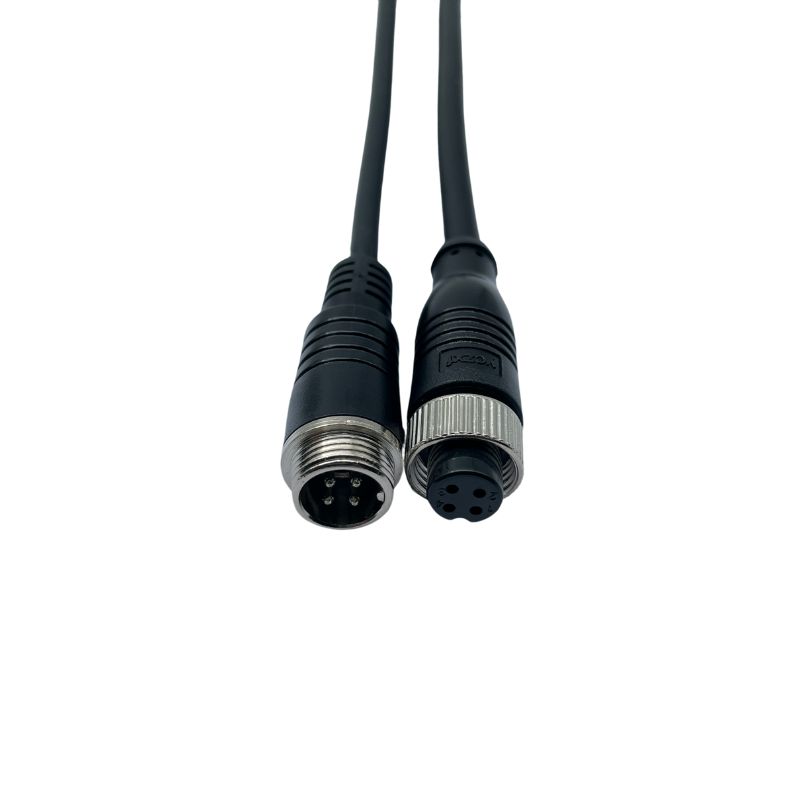
Contact Yongchang today to explore their comprehensive offerings and benefit from their expertise in providing robust, cost-effective waterproof connectors tailored to your specific requirements.